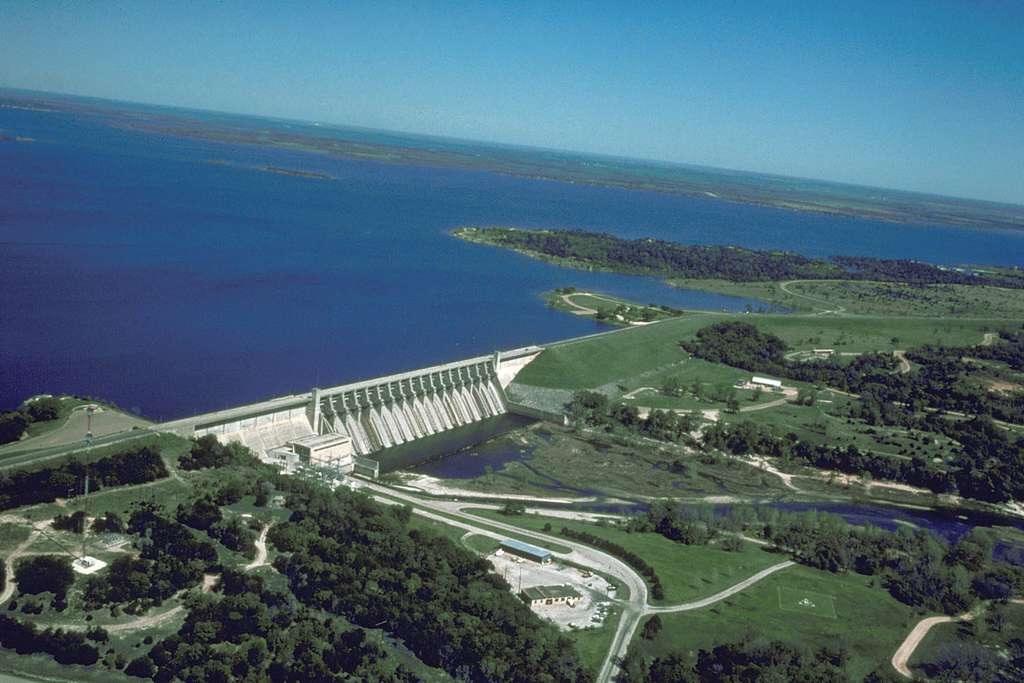Have a story idea
Have a story idea? Send it to us here.

Source : Picryl
March 24, 2025
Author : Alex Bustillos
Houston’s water infrastructure is facing a major crisis, with city officials warning that without significant investment, the system could experience a catastrophic failure.
The Houston Public Works Department is requesting $15 billion in funding to address critical water and wastewater treatment issues, including the construction of a new purification plant to replace the aging East Water Purification Plant, a $9 billion overhaul of the wastewater system, and $480 million to repair leaking pipes.
The East Water Purification Plant, which has been in operation for 70 years, supplies water to 2.2 million residents.
Houston Water Director Greg Eyerly has stressed the urgency of replacing the plant, warning that its failure would have national consequences. “This treatment plant here really feeds the heart of Houston, so Houstonians depend on this water,” Eyerly said in a statement to Houston Public Media. “If we have a catastrophic failure ... it would have a regional and national impact to the U.S.”
City officials argue that replacing the East Water Purification Plant is more cost-effective than attempting to rehabilitate it. Eyerly pointed out that major renovation projects often take years and can face delays. He cited a similar water treatment project in Dallas that has dragged on for over a decade. “We don’t have that kind of time to wait in Houston,” he said.
The new plant, estimated to cost $4 billion, would modernize the city’s water treatment capabilities and ensure a reliable water supply for decades to come. Officials have already identified a location next to the existing facility for its construction. If funding is secured, it is expected to take at least nine years to complete.
While the city works toward building a new facility, it must also keep the current plant running. However, maintaining outdated equipment is proving to be an ongoing challenge. During a recent tour of the facility, Eyerly pointed out cracked walls, leaks, and worn-down infrastructure, reinforcing the need for immediate action.
In addition to water purification, Houston is also addressing serious issues in its wastewater treatment system. The city is under a consent decree with state and federal environmental agencies, requiring it to invest $9 billion in improvements by 2036.
So far, Houston has spent about $1 billion on upgrades, preventing more than 600 sewage overflows. But there is still a long way to go. City officials are racing against the clock to comply with the decree, which mandates a strict schedule for completing infrastructure improvements.
Another major concern is the city’s leaking water pipes. Last year alone, Houston lost 32 billion gallons of treated water due to leaks- enough to supply the entire population of Fort Worth. The city is seeking $480 million to repair the worst sections of its aging pipeline system.
“We want to fix the worst first,” Eyerly explained, adding that 6% of Houston’s pipes are responsible for more than 60% of its water loss. By prioritizing repairs on these sections, officials hope to significantly reduce water waste and improve overall efficiency.
The biggest hurdle for these projects is securing funding. Houston is currently facing a $200 million budget deficit, and Harris County recently revealed a $120 million shortfall for active water drainage projects. City officials are looking to state and federal sources for financial support to avoid placing the full burden on local taxpayers.
“We’re in the process of doing that and putting together the plan,” Eyerly said. “The more outside assistance we can get, whether that is state or federal, the less pressure it’ll put on local ratepayers to have to pay for.”
Mayor John Whitmire’s office has confirmed discussions with Governor Greg Abbott about selling Houston’s water to the state for use in drought-stricken West Texas. However, some experts have raised concerns about this plan, noting that Houston itself is projected to face water shortages by 2030.
Despite financial challenges, Houston is making progress in expanding its water infrastructure. The city is currently in the final stages of a $1.8 billion expansion of the Northeast Water Purification Plant. This project, which began in 2018, will more than triple the plant’s capacity and help Houston meet state-mandated requirements to reduce its dependence on groundwater. The expanded facility is expected to be fully operational by 2025.
As Houston works to secure funding for these critical projects, officials are urging residents to stay informed and engaged in discussions about the city’s water infrastructure. The next steps will depend on state and federal funding decisions, as well as local government budget negotiations.
For now, city leaders remain focused on keeping Houston’s water system running while preparing for the major upgrades ahead. “This plant right here feeds the heart of Houston,” Eyerly emphasized. “If we have a catastrophic failure of our system, that impacts oil production, the medical center, the port. That’s an impact that’s going to be felt nationwide.”
With billions of dollars in repairs needed and mounting pressure to act quickly, Houston’s water infrastructure is at a critical turning point. Whether through state and federal funding or alternative solutions, the city must find a way to secure its water future before time runs out.
Category : Labor Union Certified Firms Investment in Infrastructure State Government Railroads
